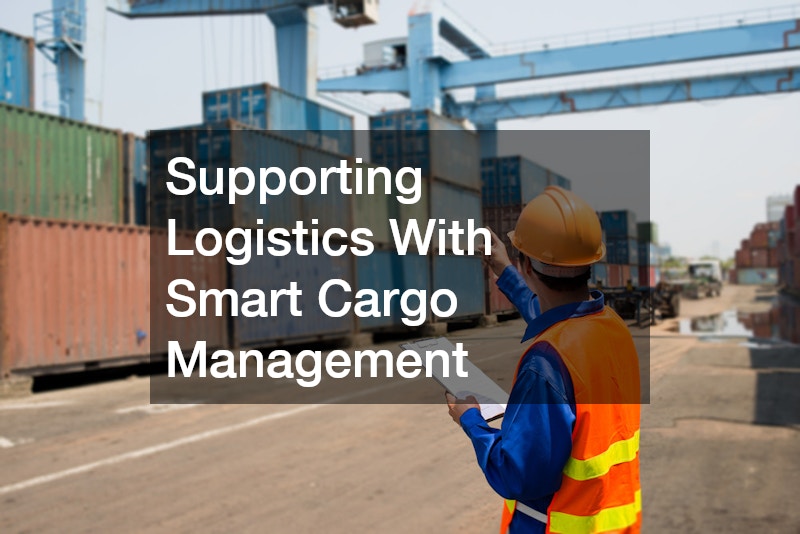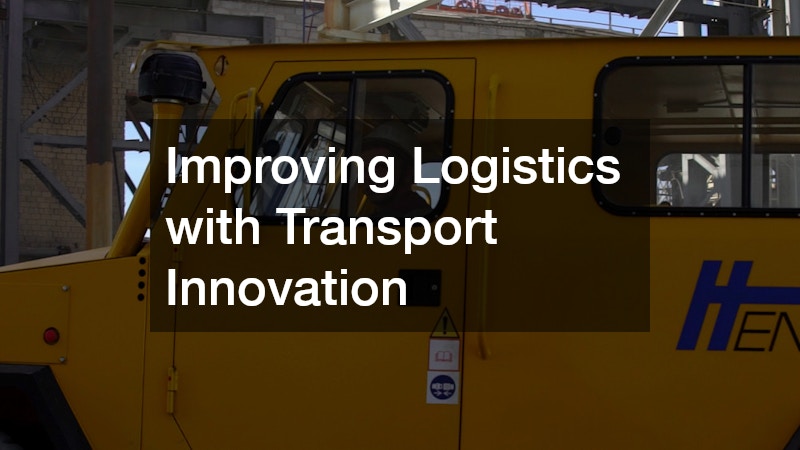Technology is indispensable in optimizing and scaling global industrial production in today’s interconnected economy. With increasing demand for efficiency, safety, and sustainability, industries worldwide are turning to digital solutions and automation to improve manufacturing, transportation, logistics, and maintenance processes. From predictive maintenance systems to intelligent delivery networks, technology is streamlining operations and enhancing reliability across every level of industrial activity.
Advanced technologies enable real-time data analysis, seamless communication, and integration of complex systems, resulting in faster decision-making and reduced operational downtime. These improvements strengthen supply chains and support competitive advantages in global markets. As innovation continues to drive transformation across industries, it is clear that the future of global industrial production depends on the seamless integration of innovative tools and digital infrastructure.
Enhancing Precision with Advanced Fabrication Tools

Precision is foundational to many industrial processes, especially in manufacturing sectors that depend on accurate machining and tight tolerances. Industries such as aerospace, automotive, and electronics rely heavily on precision to ensure that every part fits seamlessly into complex systems and functions as intended. The demand for highly precise components has driven innovation in manufacturing technologies, where small deviations from specifications can significantly impact product performance and safety.
Technological advancements in CAD/CAM software, computer numerical control (CNC) machines, and digital inspection systems have revolutionized how intricate parts are designed, tested, and produced with exceptional accuracy. CAD/CAM software allows engineers to create detailed designs and simulations, ensuring that parts can be virtually tested before physical production begins. Meanwhile, CNC machines automate the machining process, reducing the risk of human error, and digital inspection systems provide real-time quality checks to ensure that finished products meet exacting standards. These tools reduce errors and streamline workflows, and improve product consistency across global facilities, enhancing the efficiency and reliability of industrial production.
One application of this precision technology is in drill bushing fabrication services, which require meticulous design and production to meet the needs of various mechanical systems. Innovative fabrication tools and integrated inspection software help companies maintain exact specifications while increasing production speed. These innovations ensure quality and consistency in components that support global industrial production across sectors such as aerospace, automotive, and heavy machinery.
Integrating Air Transport Into the Global Supply Chain
Airports are critical hubs in the global supply chain, enabling fast and efficient movement of goods across continents. As the demand for quick, reliable shipping increases, airports play a pivotal role in ensuring cargo can move seamlessly between air, land, and sea transportation networks. The fast-paced nature of air freight requires high-level coordination and rapid processing to meet tight deadlines, making the efficiency of airport operations crucial for global industries.
With the rise of digital logistics platforms, airports are becoming more than just transit points—they are evolving into tech-enabled distribution centers that offer enhanced operational capabilities. Technologies such as automated cargo handling, RFID tagging, and blockchain tracking systems transform how materials are received, processed, and dispatched. Automated systems streamline cargo movement, reducing handling time, while RFID and blockchain technologies provide greater visibility and transparency, ensuring accurate tracking of goods throughout their journey. This integration of advanced technologies optimizes airport logistics, boosting the efficiency of the global supply chain.
An airport outfitted with innovative warehousing systems and IoT-enabled tracking can handle high freight volumes while minimizing delays and errors. These digital upgrades reduce bottlenecks, enhance security, and ensure transparency throughout the shipping process. By acting as agile links in the logistics chain, airports contribute significantly to the efficiency and reach of global industrial production.
Elevating Project Design Through Engineering Software
Engineering services have evolved by integrating digital tools that enhance design, analysis, and implementation. Technologies like building information modeling (BIM), simulation software, and cloud-based collaboration platforms allow engineers to create and refine designs in real-time while working across geographies. These tools reduce development time, minimize errors, and facilitate greater innovation.
Modern engineering services are now built on platforms integrating mechanical, electrical, and structural designs into cohesive digital environments. This connectivity ensures faster project approvals, efficient resource allocation, and higher-quality outputs. With streamlined engineering workflows, industries are better equipped to meet the demands of global industrial production, delivering complex projects faster and more cost-effectively.
Supporting Logistics with Smart Cargo Management

As industries scale and diversify, transporting goods efficiently becomes increasingly vital. Technology has modernized freight logistics by introducing smart load monitoring systems, route optimization software, and digital freight brokerage platforms. These tools improve the accuracy and timeliness of deliveries, helping companies manage costs while ensuring product safety.
A cargo trailer with GPS tracking and smart sensors allows operators to monitor conditions like temperature, humidity, and vibration in real time. This is especially important for sensitive or perishable goods that require strict transport conditions. Such innovations ensure that materials arrive on time and intact, supporting uninterrupted operations in global industrial production networks.
Expanding Fabrication Capabilities with Rolling Technology
Metal rolling is a core process in manufacturing, providing the base materials for everything from construction to transportation. The rolling process involves shaping metal into sheets, plates, or other forms, and it serves as the foundation for producing various industrial components. As industries demand higher performance and precision, the importance of advanced metal rolling techniques becomes even more evident, ensuring that raw materials meet the specifications for high-quality production.
Technological advancements in rolling mills, such as automation controls, process simulation, and AI-enhanced monitoring, have dramatically improved efficiency and product quality in recent years. Automation systems allow for greater control over the rolling process, reducing human error and increasing throughput. Meanwhile, process simulation tools and AI-driven monitoring ensure real-time adjustments to maintain tight tolerances, enabling manufacturers to meet stringent requirements with consistent quality. These innovations enhance the efficiency of metal rolling and improve product quality and operational reliability, ultimately boosting production capabilities.
Companies offering metal rolling services leverage these innovations to meet customized specifications faster and more consistently. Sensors and analytics tools embedded in rolling machines allow operators to detect anomalies early and adjust parameters on the fly. These capabilities support the high-volume, high-precision demands of global industrial production.
Boosting Heavy Lifting Efficiency with Equipment Technology
Heavy lifting is essential to industrial projects, particularly in sectors like construction, energy, and shipbuilding, where large, heavy materials need to be moved with precision and care. These industries rely on cranes to handle oversized loads, often in challenging environments that require enhanced operational capabilities. The demand for improved efficiency and safety has led to integrating advanced technologies into modern crane systems, allowing for more streamlined and precise lifting operations.
Today’s cranes have advanced features such as remote controls, load monitoring systems, GPS positioning, and automated safety checks that significantly enhance performance. Remote control systems enable operators to manage lifts from a safe distance, reducing their exposure to potential hazards. Load monitoring and GPS positioning systems provide real-time feedback, ensuring accurate load handling and improving overall lift precision. These technologies increase operator control and safety and help reduce the time spent on lifts, boosting productivity across industrial projects.
Accessing smart equipment through crane rental services enables companies to benefit from these innovations without the capital expenditure of ownership. Real-time diagnostics and digital maintenance records ensure that machines remain in top condition and meet strict performance standards. This enhanced reliability and efficiency is critical in supporting large-scale projects within global industrial production.
Streamlining Maintenance Operations Across Industrial Sectors

Integrating smart technologies has revolutionized maintenance practices, transforming how industries approach equipment care and longevity. The advent of predictive analytics allows technicians to assess the condition of machinery before failures occur, identifying potential issues based on historical data and current performance trends. This foresight enables proactive maintenance instead of reactive repairs, previously a common approach. Additionally, mobile diagnostics empower field technicians to perform real-time assessments on-site, streamlining the troubleshooting process and reducing the time it takes to address problems.
Cloud-based service logs provide a centralized repository for all maintenance activities, allowing teams to track service history, monitor equipment performance, and schedule repairs more efficiently. These advancements contribute to a more reliable and efficient operation, reducing costs associated with unexpected downtime and urgent repairs. By leveraging these technologies, industries can maximize the lifespan of their equipment and minimize operational disruptions. Ultimately, smart maintenance practices increase operational uptime, optimize resource management, and improve overall production efficiency across various industrial assets.
For example, a marine mechanic can now diagnose engine issues remotely and access digital service histories for faster troubleshooting. Combined with sensor data from onboard systems, this approach minimizes service disruptions in marine transport, which plays a key role in global logistics. Efficient maintenance practices like these ensure the smooth operation of essential systems that support global industrial production.
Protecting Sensitive Goods Through Smart Delivery Systems
Sensitive industrial goods require specialized handling and secure transport to maintain their integrity and value throughout the supply chain. Mishandling or exposure to unfavorable conditions can compromise the functionality or safety of these items, leading to significant financial losses. To mitigate these risks, companies are investing in advanced logistics solutions tailored to delicate, high-value equipment needs.
Technologies like IoT-based tracking, shock monitoring, temperature control, and blockchain documentation provide end-to-end transparency and safety during transit. These tools allow logistics teams to monitor shipments’ real-time condition and location, ensuring immediate responses to any irregularities. By reducing the risk of damage, theft, and environmental degradation, these innovations help preserve product quality and boost customer confidence in global industrial production.
A high value specialized delivery service might employ smart crates and digital chain-of-custody records to ensure the secure movement of precision machinery or medical equipment. These safeguards are critical for industries that rely on just-in-time delivery and equipment uptime. As part of the larger supply chain, specialized delivery solutions play a vital role in keeping global industrial production on schedule and on budget.
Ensuring Compliance with Global Packaging Standards
Exporting industrial goods requires compliance with strict international regulations concerning safety, sustainability, and pest control, which can vary widely between countries. These regulations are essential to ensure that products do not pose risks to public health, ecosystems, or trade relationships. For exporters, navigating this complex regulatory landscape manually can be time-consuming, error-prone, and costly. Failing to meet requirements can result in shipment delays, fines, or outright rejection of goods at international borders.
Technology simplifies compliance by enabling automated inspections, digital documentation, and real-time quality verification, significantly streamlining the export process. Automated systems can cross-check product data against regulatory databases, while digital documentation reduces the likelihood of human error. Real-time quality verification tools help ensure shipments consistently meet international standards before they leave the warehouse. These innovations speed up border clearance and enhance accuracy and accountability, making global trade more efficient and less risky for industrial exporters.
Using export certified crates embedded with smart sensors, companies can monitor environmental conditions and track location throughout the shipping process. These crates help ensure that goods meet regulatory requirements while minimizing risk of damage or delays. With reliable packaging solutions, companies can confidently navigate international markets and support global industrial production.
Improving Logistics with Flatbed Transport Innovation

Flatbed transport is vital for moving large or irregularly shaped industrial goods, often critical in supply chains that handle oversized or heavy-duty materials. Digital advancements in fleet management, load balancing, and automated scheduling are transforming how flatbed logistics are managed, introducing new levels of precision and efficiency. These technologies help reduce wait times, prevent overloading, and ensure regulatory compliance by providing real-time data and automated alerts. As a result, companies can improve delivery timelines, reduce operational costs, and enhance safety standards across their flatbed hauling services.
Modern flatbed hauling services use telematics and route optimization tools to enhance delivery reliability and safety. This enables the efficient movement of heavy machinery, construction materials, and industrial components across long distances. Flatbed transport providers strengthen the backbone of global industrial production by enhancing logistics performance.
Technology is no longer a supplementary element in industrial production—it is an essential driver of growth and competitiveness. Across every stage of the production cycle, from design and fabrication to logistics and maintenance, digital tools are reshaping how businesses operate. Integrating intelligent systems ensures precision, transparency, and resilience in a fast-changing global economy.
Industries that embrace innovation are better positioned to meet modern demands and seize global opportunities. These advancements empower companies to scale operations, minimize waste, and enhance service delivery across borders. Ultimately, the continued adoption of technology will keep global industrial production agile, efficient, and sustainable in the future.

